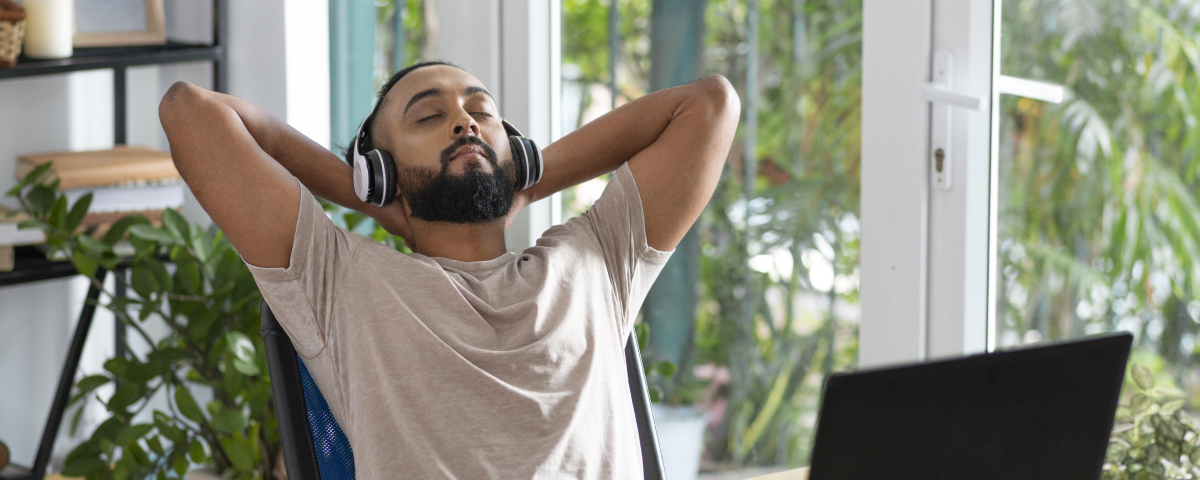Six ways micro businesses can reduce their carbon footprint
12 May 2023
How to become a digital nomad
31 May 2023The year is 2020. You’re wearing a mask, in a mile-long queue, to buy the ingredients to make your 87th soda bread of the year. Nope, you’re not in a Paul Hollywood influenced dystopian drama, yeastless bread is the only thing keeping you sane.
The pandemic feels like a lifetime ago, yet its effects can still be felt. As a society it’s not just our physical and financial wellbeing has taken a battering; our mental wellbeing has really taken its toll. According to the mental health charity Mind, “two-thirds (65%) of adults and more than two-thirds (68%) of young people with mental health problems say their mental health has got worse since the first national lockdown.”
Mental health is an important part of Caroola; that’s why our charity of the year 2021 was The Samaritans. They have a wide range of resources for your mental health including wellbeing in the workplace learning modules. Now, without further ado, let’s look at 5 key ways you can improve your mental health.
Maintain a healthy lifestyle
An underrated aspect of mental health is looking after your physical health. The old adage “healthy body, healthy mind” isn’t just a meaningless proverb, it has a genuine impact on our mental wellbeing.
According to the Mental Health Foundation, exercise increases our positive mood, self-esteem and can reduce stress and anxiety. It has also been found to play a role in preventing the development of mental health problems and improves the quality of life in those with mental illness.
You don’t have to get on the treadmill or pound the pavement for hours on end. High-intensity interval training (HIIT) is a great way of doing a satisfying workout, even on your lunch break. Take a look at this quick Joe Wicks’ workout - it’s free - so you don’t have to spend money on getting exercise into your routine.
Even taking a short walk can have a big impact. An article in the Journal of Behavioural Medicine found that a short brisk walk of just 10-15 minutes increases our mental alertness, energy and positive mood.
Catch 40 winks
You knew it was coming… As with nearly everything, getting a good night’s sleep can improve your mental wellbeing. But, how to get some good quality shut-eye? It’s all to do with what sleep experts call your ‘sleep hygiene’. Ways to improve your sleep hygiene include not watching TV in bed, avoiding caffeine, having a bath and having sleep rituals.
If you want to find more information on giving yourself great sleep hygiene. Take a look at this information sheet.
Are you a worrier?
If you’re somebody who worries a great deal, then one way to alleviate this anxiety is by turning that worry into a problem-solving task. The University of East Anglia have produced this great problem-solving worksheet to try when turning your worries into potential solutions. Take a look at the worksheet.
Alternatively, take a look at these breathing exercises or muscle relaxation techniques. They can be used in the moment, or as a part of your daily routine. Mindfulness is another way of alleviating the symptoms of anxiety. Apps like Headspace or Calm are a great way to start.
Stay connected
According to Psychology Today, interacting with others boosts feelings of wellbeing and decreases feelings of depression. With the world of work rapidly changing to remote, it’s important to set up regular calls with your clients, to keep that socialising aspect of your day-to-day life as much as possible. Or try setting time aside to have lunch with others in your household, or with clients/colleagues/friends over Zoom.
If you are feeling mentally unwell, The Samaritans have a 24-hour helpline you can use. They are here to listen to you and talk through your mental health worries. Just call 116 123 from any UK telephone.
Seek support
There is a lot of support out there if you are feeling mentally unwell. Talking to someone really can help. If you feel you need more support talk to your GP, or try and find your local IAPT service. You may be eligible for a number of therapies including counselling and Cognitive Behavioural Therapy (CBT).
Our friends at The Samaritans have a great self-help app that helps track your mood and gives you tips and tricks to help manage your mental health.

